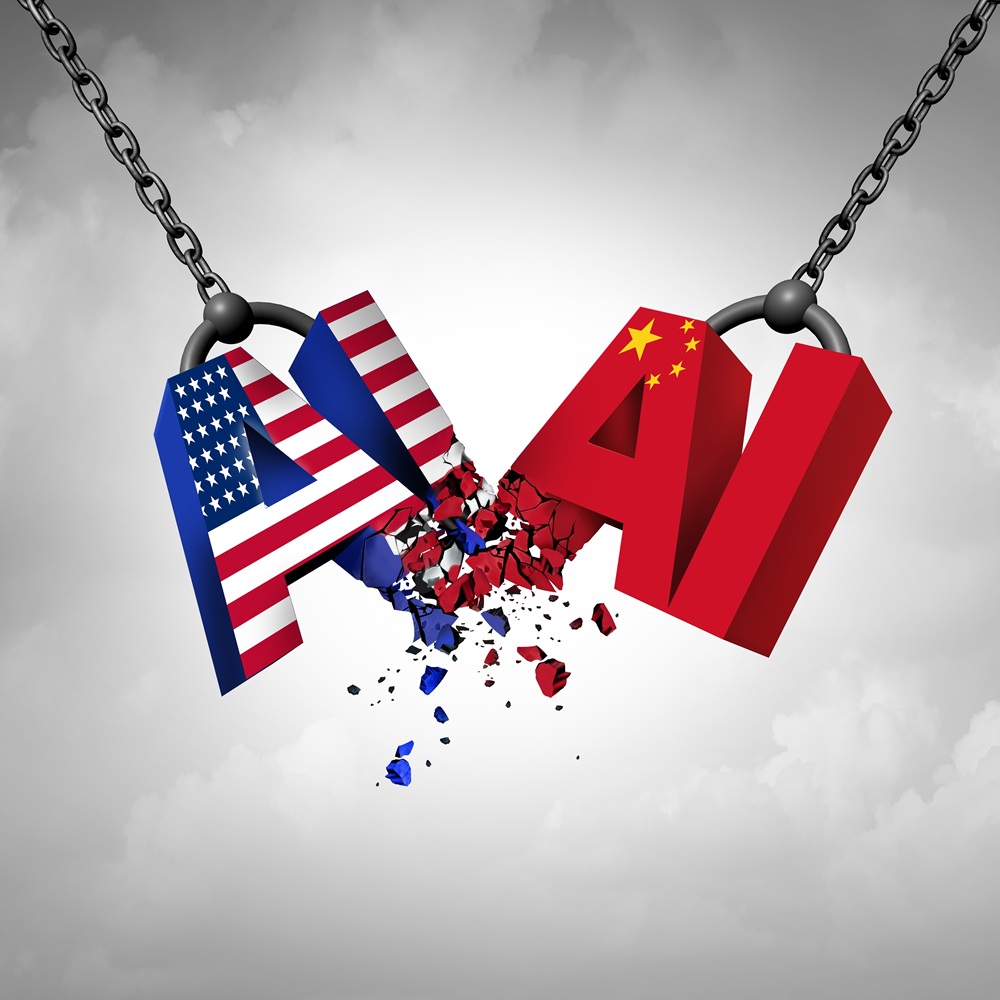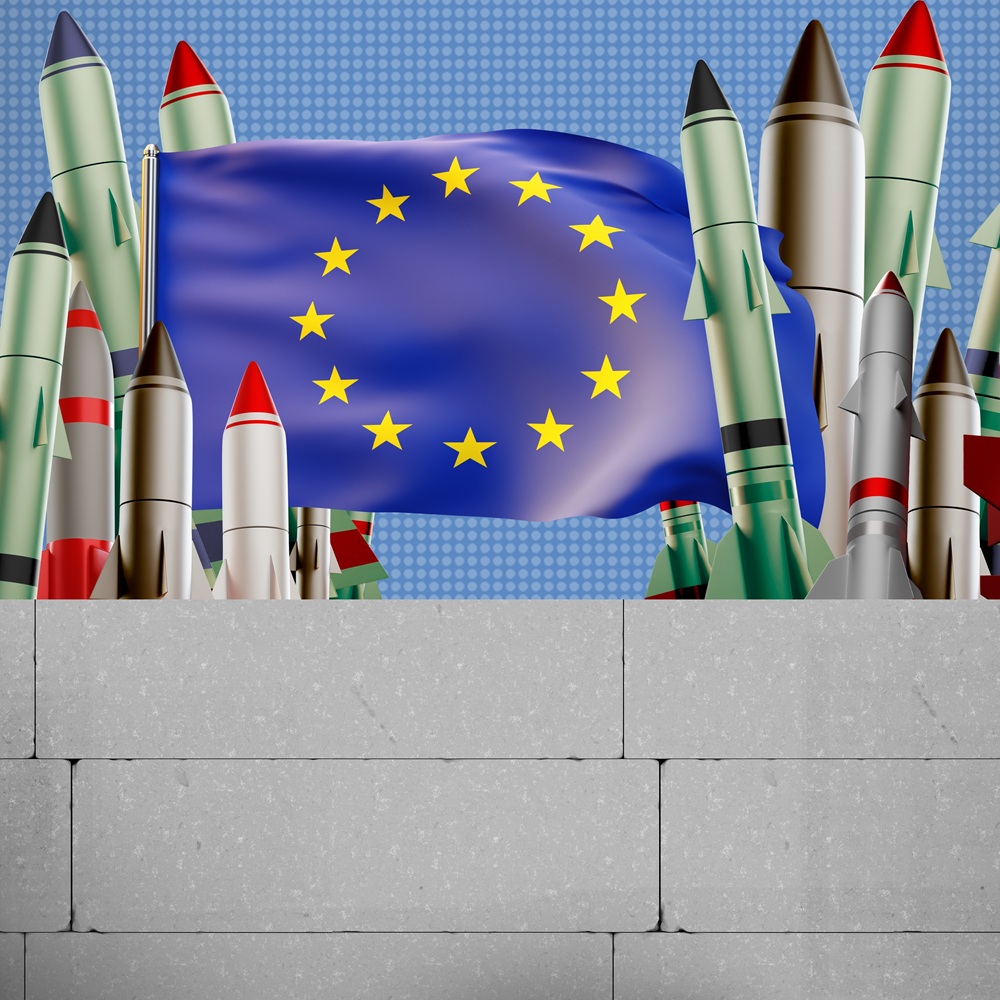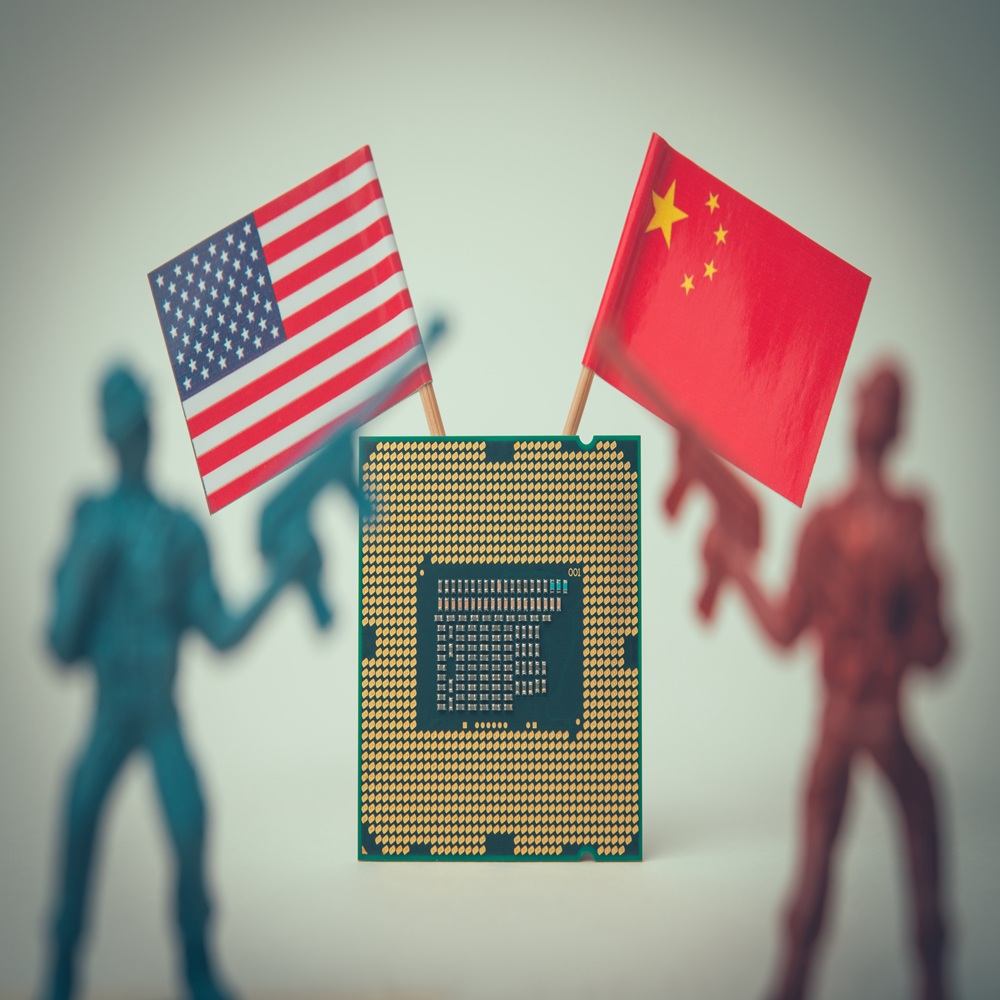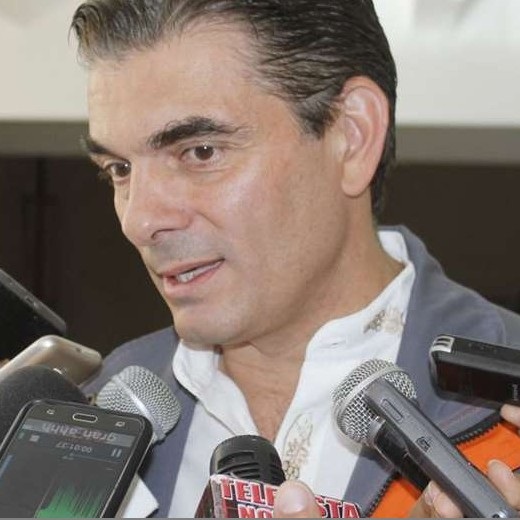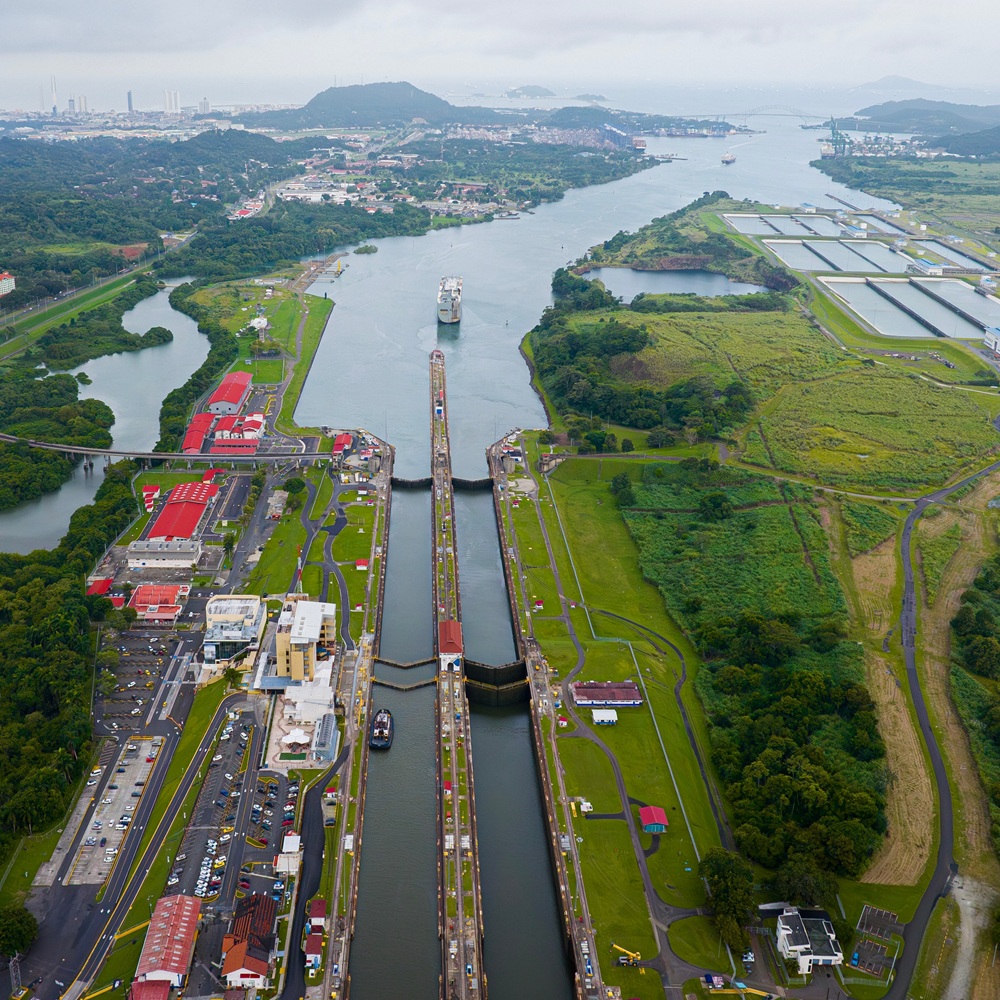The Utilitarian paradox of the War on Terror: Afghanistan and beyond
by Tabinda Sabah
Abstract
The War on Terror (WOT) initiated after the September 11, 2001, attacks has been one of the most consequential and complex military and political campaigns in modern history. Looking back it dignifies the idea that the global war on terrorism was an aggression frustration response of US towards the 9/11 attack of 2001. As it not only created a dense overlapping financial burden on the US but also the cost of the invasion was never in favor with US peace and conflict policies. Many scholars argue about the utility of WOT with other ethics of war and conflict mediating techniques along with using the paradigms of realist and liberal theories. But now when the NATO alliances withdrawal enacted the end of a 20-year constitutive war.
As the NATO withdrawal marked end of WOT without a remediate response, it enacts a dispersed or iconic philosophical thought that was the WOT was a success or utter failure? This article will foreshadow the events of WOT, NATOs withdrawal and human rights violation that emerge exploring this issue through primary lens of utilitarian paradox in international political theory.
Introduction
Afghanistan is a multi-diverse state situated in the central south Asia. Its borders are tied by mountain ranges and trading ports submerge in southern and eastern parts of Asia, Europe & the Middle East. The geography of Afghanistan has been a frontier for colonial reign for centuries. From being occupied by the from the USA – USSR post -cold war struggles till the US invasion in Afghanistan in the WOT. Afghanistan has struggled to maintain a monopoly of economy, governance, infrastructural and parental isolation of Taliban within their own boundaries.
The WOT was launched by the United States in the aftermath of September 11, 2001. The attack became one of the most contentious military and foreign policy actions in contemporary history. The war which initially aimed to dismantle terrorist organization such as al-Qaeda eliminate the Taliban regime in Afghanistan and secure global peace has lasted over two decades involving not only the USA but also the NATO forces. The centrality of military intervention and counter terrorism efforts in Afghanistan, Iraq and other regions has been met with both support and intense criticism particularly regarding its humanitarian consequences, effectiveness and long –term strategic outcomes.
The complex history between the United States and Afghanistan, particularly form the Soviet- Afghan War 1979-1989 to the 9/11 attacks, offers a case study of how international relations, realpolitik, and the principle of utility (central to utilitarianism) can guide state behavior. By examining the role of foreign of U.S. policy in terms of net benefit or harm to global security and human welfare, especially when applying the principle of utility, which aims to maximize well-being and minimize suffering for the greatest number.
This article seeks to explore the WOT through the principle of utility, a central concept in utilitarian philosophy. The principle of utility rooted in the works of philosophers like Jeremy Bentham and John Stuart Mill, posits that actions should be judged based on their ability to produce the greatest happiness for the greatest number of people [1]. By applying this principle, the review critically examines the ethical dimensions of the WOT, NATOs involvement and the humanitarian violations that have occurred throughout the conflict.
The article is organized into the following sections: 1. Theoretical foundation of utilitarianism along with US and USSR influence in Afghanistan 2. US foreign policy and military strategies during the WOT. 3. NATOs overall assessment of the WOT under the principle of utility. In each section, the analysis will assess the actions taken by the US, NATO and other actors exploring whether the outcomes align with the utilitarian ideal of maximizing overall well-being.
1. Theoretical foundations: the principle of utility in war
Utilitarianism is a consequentialist ethical theory that holds that the right course of action is the one that maximizes overall happiness or wellbeing. It evaluates actions based on their outcomes rather than their intrinsic moral qualities. This framework is particularly useful in the context of WOT. The principle of utility can be applied to assess whether the human, financial and political cost of the War were justified by the benefit of greater security, freedom from terrorism and regional stability.
While NATO withdrawal from Afghanistan in 2021 has been framed as strategic realignment, it has also triggered a range of human rights violation, most notably the treatment of civilians, the resurgence of the Taliban and plight of women and minorities. This research will critically examine the interplay between the WOT, NATO withdrawal and human rights violation that emerge exploring this issue through primary lens of utilitarian paradox in international political theory.
Utilitarian calculus in war: US relations in Afghanistan (1950-1970)
The utilitarian calculus involves comparing the benefits of military intervention (such as the defeat of terrorist organizations the promotion of security and the establishment of stable democratic government) against it cost (including civilian causalities, economics expenditure and long-term social destabilization). As the WOT unfolded, the decision –making process in the US and NATO appeared to prioritize short -term security gains over long term humanitarian outcomes.
For instances, the US began engaging with Afghanistan as part of its boarder strategy to contain Soviet expansion during the Cold War. The Helmand Valley Project aimed at modernizing the Afghan agriculture, and US aid under King Zahir Shah and Muhammad Dauod Khan government were early manifestation of US interest in Afghanistan. However, Soviet influence also grew particularly through infrastructure projects like the Salang Tunnel. The competition between the US and Soviet Union for influences in Afghanistan explains the context of utility of benefits in a realist perspective where states act primarily acts to protect and expand their own power for the greater benefit of good for the greater number of people. (Morgenthau, 1948).
Also, the key challenges in applying the principle of utility to the WOT is determining who benefits and who suffers. for instance, the US and NATO countries may have gained security by weaking terrorist groups, but the Afghan and Iraqi population have borne significant cost in term of civilian causalities, displacement and economic destabilization of the Middle East and growth of radicalization, complicates any simplistic utilitarian evaluation. Under the presumptive analysis of utility: Any war or WOT occurs where there is an imbalance in the collapse of the monopoly of the inter-state relations among the rivalry.
Furthermore, from a utilitarian perspective, the US & USSR interventions aimed to protect national security and detain the expansion of the rival superpower. However, the long-term consequences of such competition particularly the US focus on the military aid and covert actions led to the instability, civil war and the eventual Soviet invasion of Afghanistan in 1979. The overall outcome – while achieving short term strategic gains in containing the Soviet influence ultimately disrupted Afghan society, leading to the widespread maximizing welfare for the Afghan people or for the global peace in the long run, as they contributed to a power struggle that further destabilized Afghanistan.
Utilitarian critique of preemptive war
Utilitarianism also directly critiques the preemptive war doctrine espoused by the George W. Bush administration. The Invasion of Iraq in 2003, based on the belief that Saddam Hussein possessed weapons of mass destruction (WMDs) illustrated a problematic application of utilitarian reasoning. Critics argue that the invasion was not only morally unjustifiable but also inefficient as it caused massive human suffering without achieving its purported goals. According to the utilitarian philosophy such as Peter Singer’s the catastrophic outcomes of the Iraq War – millions of displaced, the loss of thousands of lives and destabilization of regions – far outweighed by any potential benefits in term of preventing future threats to US security.
Also, the US influence deterred the rise of the People Democratic Party of Afghanistan which was aligned with the soviet interest. This led to the soviet invasion of Afghanistan in December 1979 intended to prop up the PDPA government. The US response was to support the Mujahedeen Rebels providing them with military aid (including stinger missiles) & funding through intermediaries like Pakistan and Saudi Arabia. Thus, this covert operation was seen as a part of broader Cold War strategy to undermine Soviet influence in the region.
In the long run, the intervention was a justified action and response to Soviet expansionism. According to Hans Morgenthau’s principles of international politics states act based on their national interest which in this case was to counter Soviet influence. The US built alliances with the Islamism groups in Afghanistan which while supporting US geopolitical goals led to the creation of radicalized Islamist network, contributing global terrorism. The creation of this network, with groups like Taliban and Al-Qaeda exemplifies the unintended consequences for foreign intervention that may maximize short term strategic benefits but lead to a long–term instability and suffering.
The soviet withdrawal left Afghanistan in a state of chaos. The Mujahedeen factions, funded by the US turned against each other, leading to the rise of the Taliban in 1996. Meanwhile, Osama bin Laden, who had been in Afghanistan during the Soviet conflict, founded Al-Qaeda. Al-Qaeda’s rise the Taliban support for them would set the stage for 9/11 attacks.
While on September 11, 2001, Al-Qaeda under the leadership of Osama bin Laden, orchestrated the terrorist attack on the United States. The attacks killed nearly 3,000 people and led to the Taliban regime that harbored it and prevent further attacks.
Utilitarianism and long-term consequences
From a utilitarian viewpoint the US role in fostering Islamic Militancy in Afghanistan can be seen as contributing to a greater global harm in the form of terrorism. The short-term goal of defeating the Soviet Union led to the rise of extremist group that would go on to inflict severe harm globally, culminating in the 9/11 attacks. The utilitarian perspective here emphasizes that although the US successfully countered Soviet expansion, the long–term consequences – including the development of Al-Qaeda and its attacks on the US and other countries – created a greater global security threat. These consequences starkly illustrate the limits of the principle of utility raises important ethical concerns about the methods used and their long–term impacts where interventions create unforeseen global risks.
Also, the immediate benefits of the US invasion were clear: the removal of Taliban and the disruption of Al-Qaeda’s operation in Afghanistan reduced the immediate threat of global security. However, the long-term consequences – including the loss of civilian lives, economic costs, and the rise of new insurgencies – raised questions about whether the intervention truly maximized global well-being. The humanitarian cost of War, including the deaths of thousands of Afghan civilians, the destabilization of the country and the ongoing conflict must be weighed against the benefits of preventing further terrorist attacks Moreover, the prolonged US military presence in Afghanistan until their withdrawal in 2021 led to the significant economic and social costs that have yet to be fully realized in terms of global welfare.
2. US Foreign policy and military strategies during the WOT
The US action during the WOT was justified under the assumption that eradicating terrorism and ensuring national security would promote greater good, both domestically and internationally. However, the application of the principle of utility raises important ethical concerns about the methods used and their long-term impacts.
The WOT initiated by the United States in the aftermaths of September 11, 2001 attacks, fundamentally reshaped international relations and military strategy, particularly in Afghanistan. These interventions, characterized by the use of military force, under the Authorization for Use of Military Force (AUMF) aimed to eliminate Al-Qaeda and dismantle the Taliban regime that harbored them. The US was soon joined by NATO allies in what was labeled operation enduring freedom and later operation led to significant human, political, and humanitarian costs.
The Bush administration’s approach to security
The Bush administration response to the 9/11 attacks was fundamentally shaped by realist principles of international relations, which emphasize the pursuit of national interest, power, and security in an anarchic international system. Under a realist paradigm, states must act in their own self-interest, often using force to ensure their survival and dominance. This is especially evident in offensive realism, as articulated by scholars like John Mearsheimer, which suggest that great powers seek to maximize their influence and security, often through coercion and military intervention.
Under President George W. Bush the primary rationale for the WOT was the principle of self-defense and the protection of citizens from the threat of terrorism. The US government invoking the Bush Doctrine adopted a policy of preemptive military strikes, aimed to maximize the safety for the greatest number of Americans by neutralizing terrorist organization like Al-Qaeda and dismantling the Taliban support for such groups.
However, the application of preemptive military force led to significant civilian casualties in Afghanistan and Iraq. According to Amnesty International the US military use of air strikes drone attacks and ground operation led to thousands of civilian deaths raising questions about whether the benefits of eliminating immediate terrorist threats justified the loss of innocent lives. Noam Chomsky and other scholars had argued in the past that the Iraq War, in particular, was a costly endeavor that not only failed to eliminate terrorism but also contributed to the rise of groups like ISIS exacerbating the global security threat in the long-term. This outcome from a utilitarian standpoint challenges the initial justification for the WOT as the human cost seemed disproportionate to the benefits achieved.
According to UN reports and media outlets like Al-Jazeera, the conflict resulted in the loss of over 100,000 lives, including both civilians and military personnel. These humanitarian issues, however, were often sidelined in favor of military objectives and maintaining control over Afghanistan’s strategic importance.
The principle of utility in military intervention: benefits and harm
The principle of utility, central to utilitarianism, seeks to maximize overall well-being and minimize harm. From a utilitarian perspective the effectiveness of military intervention like the WOT can be evaluated by examining whether the benefits – such as the elimination of terrorist threats outweigh the harm caused to civilians, the humanitarian crises and regional instability. In the immediate aftermath of 9/11 attacks the US & NATO military actions were justified on the grounds of protecting the lives of American citizens and global security by dismantling Al-Qaeda and ousting the Talban, in utilitarian terms these goals seemed to promise a net benefit: by limiting al-Qaeda safe haven the intervention could potentially prevent future terrorist attacks on the US and its allies thereby protecting millions of lives.
The humanitarian costs and the questions of net utility
However, from a utilitarian viewpoint, the long-term harm caused by the intervention, including civilian deaths, displacement, and the destabilization of Afghanistan, must also be factored into the equations. According to various reports including the United Nations and Human Rights Watch, NATO’s military operations in Afghanistan caused widespread civilians being killed or injured. Additionally, the war exacerbated poverty, displacement, and psychological trauma for millions of Afghans. These humanitarian factors, especially when weighed against the limited gains in terms of security, question the net utility.
Furthermore, the war led to prolonged instability in Afghanistan, which has seen a resurgent Taliban and the growth of new extremist groups like ISIS-K. This indicates that the intervention did not lead to long-term stability and may have contributed to further global security. The continued suffering of the Afghan people and the rise of new threats to global security (such as the Taliban’s return to power in 2021) suggests that the long-term consequences of the intervention might outweigh its initial benefits, thus failing the utilitarian criterion of maximizing overall well-being.
State-building efforts and the decline of utility
The US and NATO also pursued the strategy of state-building in Afghanistan which was intended to create a stable democratic government. The hope was that a New Afghan Government would prevent the country from becoming a heaven of terrorists, however, despite significant investment in democratic institutions human rights and social justice the central goal of security remained elusive. The inability to create a functioning state in Afghanistan, coupled with the increase of violence and corruption, indicated that the state-building efforts were not successful in improving the long-term welfare of Afghan population.
While the US & NATO intervention in Afghanistan may have been justified through the lens of realism – to secure national interest and protect against terrorism – the utilitarian evaluation of the intervention reveals that the human and geopolitical cost likely outweighed the benefits, calling into question the true utility of the war and its outcomes. Further interventions must weigh these long-term consequences more carefully and seek to maximize the well–being of both local populations and global security.
Obama’s counterterrorism strategy: drone warfare
The Obama administrations sought to reduce ground troop deployment and shift to a strategy of targeted killings, particularly through the drone strikes, while distancing itself from the controversial Iraq War. This approach not only aimed to minimize US causalities while addressing threat posed by the groups like Al-Qaeda and Taliban. While drone strikes targeted high valued terrorists, like ISIS, Al-Qaeda and Taliban, they also crated collateral damage along with deaths of civilian in Pakistan, Yemen and Somalia while achieving the primary interest of assonating Osama bin laden.
The approach of Obama’s administration emphasized the pursuit of national interest, security and state sovereignty in an anarchical international system. Realism often holds the ideal that a state acts in their self-interest, often through military force to ensure their survival and to maintain power relative to other states. Under Obama the core objective of the US foreign policy remained the same: to eliminate terrorist threat to the US and its allies particularly from Al-Qaeda. Also, the decision to continue the Afghanistan War while pulling back from Iraq was largely framed as a more focused, efficient approach to combat terrorism by selective military actions and intelligence, instead of fugitive prolonged war. This principle prioritized the effectiveness of military power over ideological or humanitarian goals.
A key feature of the Obama’s realist approach was the unilateral actions the US took to pursue its objectives, particularly in the case of Operation Neptune Spear – the Navy Seal Operation that killed Osama bin Laden in 2011. The operation, conducted in Abbottabad, Pakistan, was not coordinated with Pakistani authorities which led to significant tension between the US and Pakistan. From a realistic standpoint the unilateral actions can be understood as a pragmatic use of military power to neutralize a direct threat to US security. In a world of anarchy, where no global authority can enforce laws, the state must often take matters into their own hands. By conducting a covert operation without seeking Pakistan’s approval, the US acted out perceived self –interest taking actions to eliminate a high valued target who posed an ongoing threat to American citizens and interests.
However, Pakistan's sovereignty was violated in this instance, which raised significant international law concerns. Under Article 2(4) of the UN Charter, the use of force by one state on another is prohibited, except in cases of self-defense. The U.S. justified the operation as a self-defense measure, arguing that Bin Laden’s presence in Pakistan was a direct threat to U.S. security, and that the operation was an act of preemptive self-defense against terrorism. From a realist perspective, this is a reasonable justification for intervention, as the preservation of national security often supersedes concerns about sovereignty.
From a utilitarian perspective, Obama’s drone strategy presents a moral paradox. While it may have successfully neutralized terrorist leaders and prevented attacks on US soil it also caused significant harm to local populations, violated international law and arguably contributed to anti-American sentiment in affected regions. In this case the benefits to US security were weighed against the moral and human cost of innocent lives lost raising question about whether the outcomes were truly in the service of the greater good.
Utilitarian analysis of the Obama administration’s WOT: maximizing security and minimizing harm.
The Obama administration’s approach to WOT can also be observed by its ability to maximize overall security and minimize harm both to the US and to civilians of Pakistan and Afghanistan. The idea is to assess whether the benefit of military actions, such as the elimination of high valued targets, outweighs the costs including civilian casualties, displacement of population and the destabilization of the region. One of the key successes of the Obama’s administration was the target killing of Osama bin Laden. The operation provided a sense of closure to the 9/11 attack, which is benefit from the perspective of US public security and national pride. The death of Bin Laden was framed as a symbolic victory over Al-Qaeda, and this may be seen as a positive outcome because it removed a key figure head of terrorism, which could reduce the perceived threat to global security.
However, the humanitarian cost of the broader WOT – which included the use of drone strikes and special force operations – were substantial. While drone strikes allowed precise targeting of terrorist operatives, they also led to numerous civilian causalities in Afghanistan, Pakistan, Yemen and Somalia. Drone warfare has been heavily criticized for the lack of transparency, the risk of collateral damage, and the psychological impact on local populations. In the case of Pakistan, the unilateral nature of the Bin Laden’s operation not only undermined Pakistan’s sovereignty but also caused political fallout that weakened the US-Pakistan relationship.
The operation demonstrated that US actions even when taken in interest of self–defense could have serious long-term geopolitical consequences, such as the erosion of trust and cooperation between states. From a utilitarian perspective, the broader costs – including the destabilization of US relations with Pakistan particularly when it comes to larger goal of regional stability – outweigh the perceived benefits of the operation.
The ethics of targeted killings
The increasing use of targeted killing, especially through drone strikes also raised significant ethical concern from a utilitarian perspective. While these operations may have been effective in neutralizing specific terrorist threats, the long-term consequences, including the moral hazard of using covert killings without oversight, can lead to escalations of violence and increased instability in the regions already plagued by a conflict. The principle of utility requires a careful balance of costs and benefits. In many instances, targeted killings have resulted in collateral damage, including the deaths of innocent civilians, which diminishes the overall moral benefit of these actions.
Ultimately while the Obama administration efforts had eliminated specific threats and achieved short term gains, the long-term impact of the regional stability and international relations suggest that the utilitarian cost benefits analysis of the WOT points to a more complex legacy. Further interventions must carefully consider both the military objectives and humanitarian cost, to better align actions with the ultimate goal of global security and human flourishing.
Trump’s “America First” approach and the cost of withdrawal
Donald Trump’s first administration continued the WOT with a focus on unilateralism and reducing US military involvement aboard. The Doha Agreement (2020) negotiated between the Trump administration and the Taliban was a significant shift in the US policy, aiming for the withdrawal of American troops from Afghanistan. While this decision aligned with Trump “American First” philosophy, which prioritized US interest over global obligation, the execution of the withdrawal was chaotic, leading to the rapid resurgence of the Taliban significant humanitarian crises.
From a utilitarian perspective the withdrawal decision can be seen as an effort to end a costly and unproductive military engagement that was producing diminishing returns. However, the aftermath of the Taliban returns to power accompanied by the collapse of Afghan government and widespread humanitarian suffering – raises significant doubts whether this decision ultimately maximized the welfare of the Afghan population or the global community. The decision to abandon NATO allies and the Afghan government, left a power vacuum, creating conditions for renewed conflict and humanitarian suffering thus failing to achieve the greater good in the long run. Paradoxically, Trump sought to reduce US involvement in long standing conflicts like Afghanistan which he viewed as a dent on American resources with minimal return in terms of national security. His decision to withdraw NATO forces from Afghanistan reflects this approach, emphasized the reduction of military expenditures and prioritizing domestic issues over international commitments.
Trump’s decision to withdraw NATO forces can be viewed as an attempt to minimize the costs of prolonged military engagement while attempting to safeguard American lives. The moral benefit of withdrawal lies in the relief of American soldiers from the ongoing conflict and allowing the US to refocus its attention on the issues perceived as more pressing like economic revitalization & domestic infrastructure.
However, the humanitarian consequences of such a move were severe. The Doha Agreement signed in 2020, aimed to facilitate the US withdrawal in exchange for Taliban assurances failed to deliver on key promises such as the protection of human rights and the creation of legitimate Afghan government. The agreement, while offering the possibility of peace did little to address the internal division in Afghanistan or to ensure the long-term stability of the country.
The Taliban’s return to power in August 2021 resulted in a swift collapse of the Afghan movement, marking a humanitarian disaster as the Taliban took over Kabul, triggering widespread violence displacement and violation of human rights, particularly women rights. The decision to withdraw without securing a lasting peace agreement resulted in a net negative outcome for Afghanistan civilian population. While the US may have minimized its military risk the benefits of withdrawal were offset by the harm inflicted on the Afghan people.
The Doha Agreement and peace talks.
The Doha Agreement (February 2020) reflected Trump’s aims of ending the “forever war” in Afghanistan. The agreement led to US-troop reduction in exchange for Taliban promises not to harbor terrorist organization and a commitment to negotiating with the Afghan government. From a utilitarian perspective, the promise of peace talks was intended to maximize overall stability by ending the cycle of violence.
However, the exclusion of the Afghan government from the peace talks and the continued violence by the Taliban during that period – undermined the utility of the agreement. The lack of inclusivity in the talks created a perception that US was abandoning its Afghan allies and supporting a regime that had a long history of human rights violation. The net benefit of the Doha Agreement therefore can be seen as limited, as it failed to bring about the desired peace or long-term stability in Afghanistan, while the Taliban rapidly retook the power once the US troops began their withdrawal.
Biden’s commitment to ending the WOT
Biden decision to proceed with the US withdrawal was framed as a continuation of a long-standing policy of ending the war. Biden argued that the US mission had evolved from counter terrorism to nation-building and that the Afghan government was not capable of holding power without US military support. In his view, the war had become a strategic quagmire, consuming trillions of dollars and thousands of lives without clear, sustainable outcomes. Biden’s decision to withdraw aimed at minimizing the harm to American soldiers and the financial burden of the war.
However, the immediate humanitarian impact of the withdrawal was catastrophic. The rapid fall of Kabul in August 2021, months ahead of the scheduled withdrawal, led to scenes of chaos and desperation. The human cost of the disorganized withdrawal, the Taliban resurgences and the human right abuses that followed outweigh the short-term benefits of US troop withdrawals.
From a utilitarian perspective, Biden decision to withdraw aimed at minimizing the harm to American soldiers and the financial burden of the war. However, the immediate humanitarian impact of the withdrawal was catastrophic. The rapid fall of Kabul in August 2021, months ahead of the scheduled withdrawal, led to scenes of chaos and desperation, as thousands of Afghan Civilians – including those who had assisted US troop withdrawals.
While Biden justified the pullout as a necessary step for ending the war, the immediate aftermath suggested that the overall utility of the withdrawal was minimal, as the Taliban’s return marked a return to an authoritarian rule, with increased repression of women, journalist and other civil society groups.
Biden’s foreign policy and NATO’s role
Biden’s administration faced significant criticism for its handling of NATO’s withdrawal from Afghanistan. The collapsing Afghan government left NATO allies in a difficult position, as they were forced to evacuated personnel and citizen alongside US forces. The dis-orderly nature of the withdrawal strained NATO alliances, as many European countries felt sidelined by the US decision–making process.
From a utilitarian viewpoint, the US withdrawal had a dual impact on NATO. On one hand, it removed NATO forces from an increasingly unpopular and costly conflict, thereby reducing the risk for Western nations. On the other hand, it undermined the credibility of NATO as a security alliance, casting doubt in US commitment to collective defense under Article 5 of the NATO Treaty and creating a vacuum within the EU and NATO that was quickly filled by the resurgence of the Taliban.
3. NATO’s role and withdrawal from Afghanistan
NATO roles in Afghanistan were to assist in stabilizing the country after the initial US invasion and to ensure that Taliban could not regain power. However, NATO efforts through significant in terms of resources and manpower were ultimately undermined by the persistent instability corruption and a lack of clear political resolution in Afghanistan.
However, the Biden administration faced significant criticism for its handling of NATO withdrawal from Afghanistan. The collapsing Afghan government left NATO allies in a difficult position as they were forced to evacuate personnel and citizens alongside US forces. The disorderly nature of the withdrawal strained NATO alliances as many European countries felt sidelined by the US decision-making process.
From a utilitarian viewpoint the US withdrawal had a dual impact on NATO. As it undermined the credibility of collective defense under article 5 of the NATO Treaty, the EU and NATO allies faced the challenge of reassessing their own defense strategies as they were left to cope with the vacuum created by the US pullout and the resurgence of the Taliban.
The Utility of NATO’s Intervention was framed as a collective security mission aimed preventing terrorism and fostering a stable democratic Afghanistan. From a utilitarian perspective NATO goal was to promote peace and security for the Afghan people while supporting the broader international community fight against terrorism. NATO actions contributed to civilian casualties raising ethical concern about the cost-benefit ratio of the intervention.
The chaotic withdrawal in 2021 mirrored under President Biden was another critical juncture in the WOT. The sudden collapse of the Afghan government and the Taliban swifts return to power raised questions about the utility of NATO long-term involvement in Afghanistan. The withdrawal did not produce a greater good as the human cost of Taliban resurgence, and the subsequent humanitarian crisis significantly outweighed the benefits of the mission.
Regional geopolitics and the Taliban’s return to power
The Taliban’s rapid rise to power was followed by international recognition from China, Russia, and Pakistan, all of whom were keen engage diplomatically with the new regime. China’s BRI initiative showed interest in Afghanistan’s strategic location, while Russia and Pakistan sought to maintain their regional influenced. From a utilitarian perspective, this shift in regional power dynamics presents mixed outcomes.
On the positive side, the Taliban’s reassertion of control over Afghanistan could potentially reduce terrorist activities within the region if the Taliban adheres to the assurances it made to foreign powers regarding counter-terrorism efforts. However, the humanitarian costs, especially for the Afghan population – remain severe. The Taliban’s treatment of women, freedom of speech and other fundamental rights represent a serious human cost that undermines the utilitarian justification for withdrawal.
For neighboring countries like Pakistan, the Taliban rise creates a security dilemma as it may embolden domestic insurgents like the Tehreek-e-Pakistan (TTP). This could lead to spiral of violence that destabilizes the entire region, potentially leading to further refugee flows, terrorist activities, and cross conflict.
The US withdrawal from Afghanistan, under both Trump and Biden was driven by the goal of minimizing the costs of prolonged military engagement, which from a realist perspective, could be justified as a necessary step in re-orienting US foreign policy. However, from a utilitarian standpoint the humanitarian consequences of the withdrawal including civilian suffering, regional instability, and the empowerment of the Taliban, have largely outweighed the short-term benefits.
4. Humanitarian consequences and civilian casualties and the use of force
One of the most striking aspects of the WOT and particularly the US and NATO actions in Afghanistan and Iraq is the humanitarian violations that have accompanied military operations, the principle of utility demands that the human cost of war be carefully considered and yet civilian casualties during the WOT have been significant. According to estimates, more than 200,000 civilians have been killed in Afghanistan alone with additional fatalities in Iraq and other regions affected by the conflict.
The extensive use of drone strikes air raids and ground operation against the Taliban’s Al-Qaeda targets has resulted in numerous instances where civilians were killed in the process. While these actions may be justified as targeting terrorist the humanitarian consequences raise question about whether the WOT strategic objective were worth the cost incurred. Utilitarian philosophers like Rosa Brooks argue that this violation which may have been undertaken in the name of security failed to maximize the well-being of those affected, particularly the victims of torture. The collateral damage in terms of civilian suffering and the loss of moral credibility further diminishes the utilitarian justification of these actions.
Bush administration: the use of force without legal protection
The Bush administration’s labeling of Al- Qaeda as a terrorist organization allowed for the indefinite detention of suspected terrorists with many denied the rights of prisoners of war (POWs) as outlined in Geneva Convention article 3. The US government’s treatment of captured militants, including the decision to not grant them POW status, was a direct violation of international law. The lack of judicial trial, along with the use of military commission to try detainees, highlighted the absences of fair trial guarantees and violated basic principles of justice.
Detention and torture: Guantanamo Bay
The detention of suspects at Guantanamo Bay and the torture inflicted on prisoners there, became a significant violation of international human rights law. Detainees held in indefinite detention without trial were often subjected to enhance interrogation techniques, which included waterboarding, stress positions and other forms of psychological and physical abuse. These actions violated international conventions, including the Geneva Conventions and the Convention Against Torture (CAT), both of which prohibit torture and inhumane treatment.
From a utilitarian perspective, these actions fail to justify the moral harm they caused. The human suffering of detainees at Guantanamo, along with the damage to the US international reputation, cannot be outweighed by the perceived benefits of gathering intelligence. While some argue that torture may have produced vital information, the overall harm caused to human dignity, individual rights and the rule of law suggest a net negative utility.
Drone strikes and civilian casualties
Drone strikes, particularly in Pakistan, and Afghanistan have been another controversial aspect of the WOT. These strikes, which were often conducted with minimal oversight and without regard for sovereignty of countries, resulted in the deaths of thousands of civilians. In many cases non-combatants, including women and children were killed in mistaken strikes or when their proximity to a target was deemed insufficient to prevent harm.
From a utilitarian standpoint, drone strikes can be seen as a high–risk, high-reward strategy. The argument made by proponents of drone warfare is that it minimizes American causalities and prevents terrorist attacks, therefore maximizing American causalities and prevents terrorist attacks, therefore maximizing national security. However, collateral damage and the disruption of communities in targeted countries can lead to the problem. This creates a vicious cycle, while the US attempts to reduce the immediate threat the long-term harm to global stability and human lives is profound.
For instance, the 2010 incident in which 23 civilians were mistakenly killed in a drone strike is a clear example of this negative utility. The mistaken targeting of civilian buses underlines the lack of precision and accountability in the US strategy, which when weighed against the loss of innocent lives, cannot be justified under the utilitarian principle of minimizing harm.
Obama administration and violation of IHL
Under Obama’s administration, the drone strikes campaign intensified with the goal of targeting high valued terrorist and leadership figures within Al- Qaeda and the Taliban. While the strikes may have helped eliminate specific threats, they were often conducted without proper regard for international humanitarian law, particularly distinction (the principle that combatants and civilians must be distinguished) and proportionality (the requirement that military actions must not cause excessive civilian harm in relation to the anticipated military advantage).
For instance, Obama’s Operation Neptune Spear, which targeted Osama bin laden in Pakistan, while celebrates as a success in eliminating a key terrorist figure, raised significant legal questions. The operation violated Pakistan’s sovereignty and was conducted without prior consent, in clear breach of the UN Charters provisions against the use of force on foreign soil without permission. A utilitarian may argue that the elimination of bin Laden may have offered short-term benefits in terms of counterterrorism, the long-term consequences – the violation of international law, the deterioration of US-Pakistan relations and the potential for escalated conflict – suggest that the operation caused more harm than good.
5. The economic and social cost of the WOT
The financial cost of the WOT was astronomical. According to the US Department of Defense, the total military expenditure in Afghanistan from 2001 until 2020 was around $ 955 billion with estimates that the total cost of the WOT, including related costs, could reach $2 trillion by 2024. This enormous expenditure, while it supported military and intelligence operations, could arguably have been better utilized from a utilitarian argument, for domestic priorities like health care, education, and infrastructure.
Furthermore, the opportunity cost, the benefits that could have been derived from using the resources elsewhere, undermines the utilitarian arguments for continuing the war, particularly given the lack of tangible success in achieving long-term peace and stability in the regions affected by the war.
The human cost
The human cost of the WOT was profound. Thousands of US soldiers, tens of thousands of Afghan civilians and hundreds of thousands of people in the broader region lost their lives. Many others faced psychological trauma and displacement. The US military emphasizes on counter insurgency and drone strikes, while designed to protect American lives, resulted in widespread civilian casualties and displacement in the countries like Afghanistan and Pakistan, further destabilizing the region.
Discussion
The WOT initiated after September 11, 2001, attacks have been one of the most consequential and complex military and political campaigns in modern history. Looking back there are several key reconditions and conflict mediation on how it could have been handled differently to achieve better outcome, reduced unintended consequences, and hold international law and human rights
Applying the principle of utility to assess the overall effectiveness and morality of the WOT reveals a complex picture. While the US and NATO achieved some military successes, including the eliminations of key terrorist leader and the weakening of organizations like Al-Qaeda, these gains were accompanied by profound humanitarian costs.
From a short- term utilitarian perspective the WOT may have been justified in terms of protecting US national security and neutralizing immediate threats forms of terrorism. However, when considered from a long-term perspective the human, financial, and strategic costs - especially the rise of radical groups like ISIS, the displacement of millions, and the destruction of entire societies - raised serious doubts about whether the WOT truly maximized global well-being. The ethical implications of the civilian casualties, torture and human rights violation further complicate the utilitarian evaluation.
From a utilitarian perspective the WOT appears to have been a failure , the short term benefits such as eliminating terrorist leaders like Osama bin Laden – do not outweigh the long-term harm caused by the war including: humanitarian violation (torture, extra-judicial killing, drone attacks), financial burden (trillions of dollars spent, with little to show in terms of lasting peace or security), social and psychological costs (widespread of causalities in Afghanistan and Pakistan), and erosion of international norms (the violations of the Geneva Conventions, particularly the treatment of prisoners, contributed to the decline of international humanitarian standards).
Conclusion
The WOT and NATO involvement in Afghanistan and the humanitarian violations that accounted for the military intervention provided a rich case to evaluate the effectiveness of foreign policy through the lens of utility. While the WOT was initially justified on the grounds of maximizing security and protecting national interest in the long-term, consequences including civilian causalities, regional instability and the erosion of human rights suggest that the ultimate outcome were far more ideal. Although the utilitarian studies enacted some tactical victories in the WOT, the overall utility in terms of human rights, financial cost and global stability was negative.
As a result, the strategy failed to create sustainable peace and instead resulted in a cycle of violence that ultimately undermined the very values it aimed to protect. Consequently, NATO may have failed to achieve greater good, causing more harm than benefit to both the people in the regions affected and the broader international community.
In retrospect, instead of heavy reliance on military interventions the US and its allies could have focused more on intelligence gathering, law enforcement and international cooperation to disrupt terrorist cells before they could act. In short, focused on intelligence and law enforcement, not just military force
Moreover, engaging more deeply with moderate Muslim –majority countries and regional allies to counter extremist ideologies and promote development and political stability in the Middle East and beyond would be a good idea. The WOT often alienated large segments of Muslims worlds furling resentment and contribution to the efforts of groups like Al-Qaeda and ISIS. A focus on diplomacy, addressing underlying grievances, and building local political and economic structures would have been more sustainable.
Similarly, avoiding overuse of force in Afghanistan and Iraq would have helped. The US-NATO forces could have employed more targeted operations including special forces counter insurgency tactics and precision air strikes, rather than large-scale military invasions and occupations, because these onset of wars accounted for the increase of causalities, which allotted disruption to the laws of wars amendments
Furthermore, to ensure lasting peace, it was essential to promote nation building and reconstruction. Military intervention efforts should have focused more on this aspect.
Equally important was better adherence to Human Rights and International Law. The WOT should have adhered more strictly to international laws, including the Geneva Conventions and upheld human rights standards to prevent practices like torture, indefinite detention and extraordinary renditions. Actions and unlawful detentions tarnished rage moral authority of the US and its allies and violated human rights standards.
This approach not only harmed individuals but also damaged global support for the WOT, leading to accusations of hypocrisy and fueling anti-Western sentiment. The WOT should have been framed as a global problem involving broad cooperation with international organizations like the United Nations and regional coalitions.
Finally, addressing the root causes of terrorism - poverty, education, and political grievances -was crucial. Public diplomacy and soft power should have been used more effectively; the US should have relied more on cultural programs and soft power to counter extremist narratives and build goodwill in Muslim-majority countries.
References
1. Amanullah Haidary Azadany. 2016. How Would a Realist Explain the Civil War in Afghanistan? Vol 12. European Scientific Journal
file:///C:/U s ers /admin/D ow nloads /7171 -A rticle%20Text - 20870 - 1 -10 -20160330%20(1).pdf
2. Emily Stewart. (2021). the history of US intervention in Afghanistan, from the Cold War to 9/11. https://www.vox.com/world/22634008/us-troops-afghanistan-cold-war-bush- bin-laden
3. Mohammed Ahsan Zia. (2000). An Analysis of Peace-building Approaches in Afghanistan. https://asiasociety.org/analysis-peacebuilding-approaches-afghanistan
4. Trevor Blond in. (2015). Soviet Intervention in Afghanistan, the Saur Revolution, and the Cold War. Volume 2, (2). The Undergraduate Historical Journal at UC Merced. https://escholarship.org/uc/item/5qx01820
5. Julie Lowenstein. (2016). US Foreign Policy and the Soviet-Afghan War: A Revisionist History. https://elischolar.library.yale.edu/cgi/viewcontent.cgi?article=1045&context=applebaum_award
6. Sergey Kyree. (2004). G George Lisa Gee Liska's Realist Alliance Theory s Realist Alliance Theory, and The, And the Transformation of Nato. file:///C:/Users/admin/Desktop/George%20Liskas%20Realist%20Alliance%20Theory%20And%20The%20Transformation%20Of.pdf
7. The U.S. War in Afghanistan. (1991-2021). https://www.cfr.org/timeline/us-war-
afghanistan
8. Prabhash K Dutta. (2021). “20 years of 9/11: From Terror to WOT to Return of Terror”. https://www.indiatoday.in/world/story/20-years-of-9-11-from-terror-to-war-on-terror-to-return-of-terror-1851656-2021-09-11
9. Bill Calcutt. (2011). “just war theory and the WOT”. Journal of Policing, Intelligence, and Counter-Terrorism. Research gate publishers. file:///C:/Users/admin/Downloads/Justwartheory-JPICTV6N2-Oct11.pdf
10. Ruairidh Wood. 2020 “Promoting democracy or pursuing hegemony? An analysis of U.S. involvement in the Middle East”. Vol. 6, No. 2. Journal of Global Faultlines’ pp. 166-185. Published by: Pluto Journals. https://www.jstor.org/stable/pdf/10.13169/jglobfaul.6.2.0166.pdf?refreqid=excelsior%3A7b9ad0d28602a07b5febbc678c780c26
11. Md. Mizanur Rahman. (2018). “The US State-building in Afghanistan: An Offshore Balance?” Vol. 23(1). Pp: 81_104.Jadavpur Journal of International Relations. https://journals.sagepub.com/doi/pdf/10.1177/0973598418804292
12. Timothy Hoffman. (2015). “Realism in Action: Obama Foreign Policy in Afghanistan”. Political analysis Vol.16. article 6
https://scholarship.shu.edu/cgi/viewcontent.cgi?article=1019&context=pa
13. Brett Campbell. (2014). “Realist or Liberal? Theoretical Interpretations of the Obama Administration’s Counterterrorism Strategy”. file:///C:/Users/admin/Downloads/B_Campbell%20(2).pdf
14. Luis E. Chiesa & Alexander K.A. Greenawalt. (2012). “Beyond War: Bin Laden, Escobar, and the Justification of Targeted Killing”. https://digitalcommons.law.buffalo.edu/cgi/viewcontent.cgi?article=1343&context=journal_articles
15. Alexander J. (2013)."The Killing of Osama Bin Laden" Law School Student Scholarship. 308.
https://scholarship.shu.edu/student_scholarship/308
16. Meghan McGee. (2020).” Europe Needs to Push Back against Trump: Disastrous and erratic policies demand a stronger response. https://foreignpolicy.com/2020/07/10/trump-europe-nato-transatlantic-push-back/
17. Grant Farr. (2020).” The Afghan Peace Agreement and Its Problems”. Published at International Relations. https://www.e-ir.info/2020/04/06/the-afghan-peace-agreement-and-its-problems/
18. Aljazeera. (2021). “Inside Story: How will US troop withdrawal affect Afghanistan?”
https://www.aljazeera.com/program/inside-story/2021/4/14/how-will-us-troop-
withdrawal-affect-afghanistan
19. Furqan Khan. (2021).” The Afghan Conundrum: Taliban’s Takeover and the Way
Forward”. https://www.airuniversity.af.edu/JIPA/Display/Article/2759350/the-afghan-
conundrum-talibans-takeover-and-the-way-forward/
20. Vilde Skorpen Wikan. (2015). “How Has the Human Rights Regime Been Affected by 9/11 and the ‘WOT?”. https://www.e-ir.info/2015/08/30/how-has-the-human- rights-regime-been-affected-by-911-and-the-war-on-terror/
21. Human Rights Watch. (2004). “Enduring Freedom”: bourses by U.S. Forces in Afghanistan”. Vol. 16, No. 3(C). https://www.hrw.org/sites/default/files/reports/afghanistan0304.pdf
22. Jean-Marc Piret. (2008).” The war against terrorism », international law and the growth of unchecked executive power in the U.S.” carin. Info. Vol: 60. https://www.cairn.info/revue-interdisciplinaire-d-etudes-juridiques-2008-1-page-59.html
23. Hilde Eliassen Restad. “The WOT from Bush to Obama: On Power and Path
Dependency”. https://www.files.ethz.ch/isn/142735/NUPI-WP-798-Restad.pdf
24. Christopher Paul Kailani Medeiros. (2013). “Neither Legal nor Justiciable: Targeted Killings and De Facto Immunity within the War on Terror”. https://gsj.global.ucsb.edu/sites/secure.lsit.ucsb.edu.gisp.d7_gs-2/files/sitefiles/Medeiros.pdf
25. Afghanistan Independent Human Rights Commission: “Violations of International Humanitarian Law in Afghanistan Practices of Concern and Example Cases”. https://www.refworld.org/pdfid/471f4a500.pdf
BBC news. (2021).” Afghanistan: What has the conflict cost the US and its allies? https://www.bbc.com/news/world-47391821
